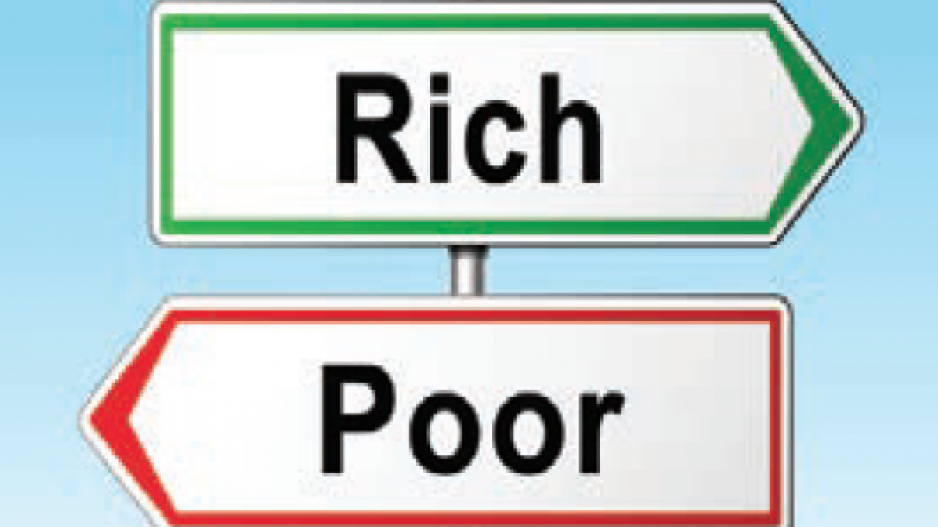There are more rhinestones than gems in the Internet’s homespun humour. But this has endured in my mental filing cabinet: “Everyone who drives faster than you is a fool, and everyone who drives slower than you is an idiot.”
Its appeal is that it can be retooled for many situations. Such as today’s theme: “Everyone who is much richer than you is a bloated pig, and everyone who is much poorer than you deserves it.” (Even the mean-spirited will exempt victims of blameless misfortune and the long-term disabled, but if you don’t know a few authors of their own tragedies and nimble lead-swingers in the welfare ranks, you aren’t watching closely.)
Now to a recent report of the Broadbent Institute, chaired by former New Democratic Party leader Ed of that name, a decent chap to be sure. Drinking the bathwater of the Canadian Centre for Policy Alternatives, splashing in the tub of a recent American study that examined wealth inequality rather than the more conventional income inequality, the institute concludes that 10% of British Columbians control 56.2% of the province’s wealth. Across Canada, the bottom 30% account for less than 1% of the nation’s wealth.
We are in the Land of Jealousy and in the territory of the Statistics of Shame. Such studies from the left of course are meant to make the “rich” (an elastic term – as rubbery as the “poor” ) feel guilty and the rest feel resentful. And, a few saints excepted, envious.
As always, where you stand depends largely on where you sit. These days in Vancouver, with its crazy real estate prices, someone with a mere few million in net assets may not feel, or act, rich at all. In fact studies have shown many drive Chevs and Fords, disciples of plain-living Warren Buffett – that’s how they, and he, got their pile.
Thrift begins early. Like living within one’s means. (Their punishment is for the modern state to keep interest rates on their savings low and to tax them mercilessly.)
In any event, such statistics conceal as much as they reveal. John F. Kennedy famously said of strong economic times, “A rising tide lifts all boats.”
But some equipped only with canoes will then row carefully toward deeper, safer waters, while others will take that as a signal to set sail recklessly and crash on the shoals of (frequently bigger) debt.
I’m a little seasick with that sailing metaphor myself. Anyway, even if we could somehow line up equally for the race, as soon as the starting gun was fired some would take the liberty to be much more equal than others.
The Broadbent types elaborately avoid examining whether character, will and choice have anything to do with wealth inequality. That would be “judgmental.”
Good example: Lewis Lapham, who writes far too well for someone of privileged birth (old Texaco money) and far too inclusively about American culture, once wrote that if the laws in some jurisdictions against adultery were enforced, “everybody would be in jail, but it is also true that sexual promiscuity and infidelity causes more misery (for the featured players as well as for the children in the supporting cast) than ever gets explained in the program notes.” Does that describe many members of that poorest 1%?
Not to deny or defend some ugly ways to pay the entry fee into B.C.’s charmed 10%. But neither to overlook the generosity of some of its members who write very large cheques for very good causes concerning health, hospitals, libraries, the arts and international aid.
Best advice concerning the 10%: join it.
Trevor Lautens writes for Business in Vancouver every second Tuesday.




